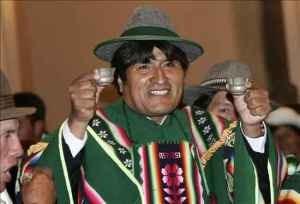Cocalero
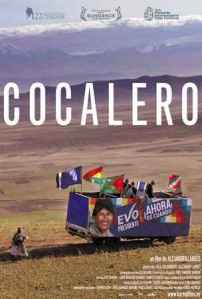 Cocalero a documentary by Alejandro Landes follows Evo Morales on his quest to become the first indigenous president of Bolivia. Evo gained popularity when the indigenous farmers of Bolivia were being forced to stop growing coca on their farms. Without coca these farmers had nothing to support themselves and their families. Evo would become the hope for the indigenous population.
Cocalero a documentary by Alejandro Landes follows Evo Morales on his quest to become the first indigenous president of Bolivia. Evo gained popularity when the indigenous farmers of Bolivia were being forced to stop growing coca on their farms. Without coca these farmers had nothing to support themselves and their families. Evo would become the hope for the indigenous population. 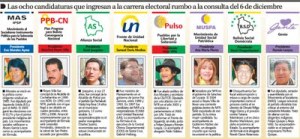 Evo’s MAS party would work hard to educate the population on the issues and the basics of how to vote. Evo was the people he too was a farmer and he knew how to relate and the cocaleros were proud to have a voice and now a president that was there for them.
Evo’s MAS party would work hard to educate the population on the issues and the basics of how to vote. Evo was the people he too was a farmer and he knew how to relate and the cocaleros were proud to have a voice and now a president that was there for them.
Les Field’s, article Ecuador’s Pan-Indian Uprising, discusses how in May 1990, a hundred and sixty Indians occupied the Santo Domingo Cathedral in Quito and demanded resolutions to land disputes. This uprising and others would cause total shutdown of the country for a week. It would also mark the end of Ecuador’s indigenous population’s outsider role in politics. The indigenous people were tired of being looked down upon and they were ready to fight using their own ideas and judgments, similar to the revolt of the cocaleros in Bolivia. During the film we saw how Ecuador’s indigenous people blocked the roads and highways with boulders, and trees to successfully stop trade and productivity. These protests would lead to the military coming in and using force to dismantle their cause. This did not deter them, in fact it helped in getting the attention of their country and the world.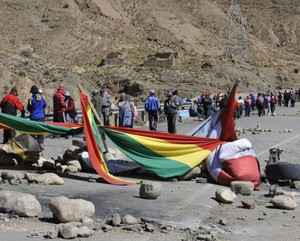
Many people did not feel that indigenous populations deserved land rights. According to Suzana Sawyer’s article The 1992 Indian Mobilization in Lowland Ecuador, the public stated “Indians are lazy; they never make productive use of land.” But they were making use of their land, just not how the capitalists wanted them to. Sawyer also mentioned that having a land title might possibly hinder future colonization of indigenous land, but it did not guarantee their control of what happened on the land. The state still retained the ruling rights to all subterranean resources, especially the coveted petroleum. So owning a deed to land meant that you could not prevent the state from drilling for oil on your property. Saying that you owned land on paper basically meant nothing. The indigenous people were not allowed to practice traditional farming, or even use the land however they saw fit. 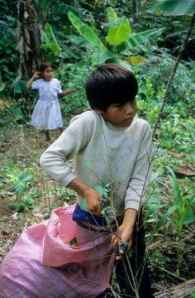
Cocalero illustrated that the indigenous population was gaining a voice. They wanted to be heard. They were educating themselves on issues as well as speaking out on the issues that were important to them. Evo would win his election with their support, and he would win by a majority. His victory would be a turning point for other indigenous Latin Americans to stand up and be heard. 